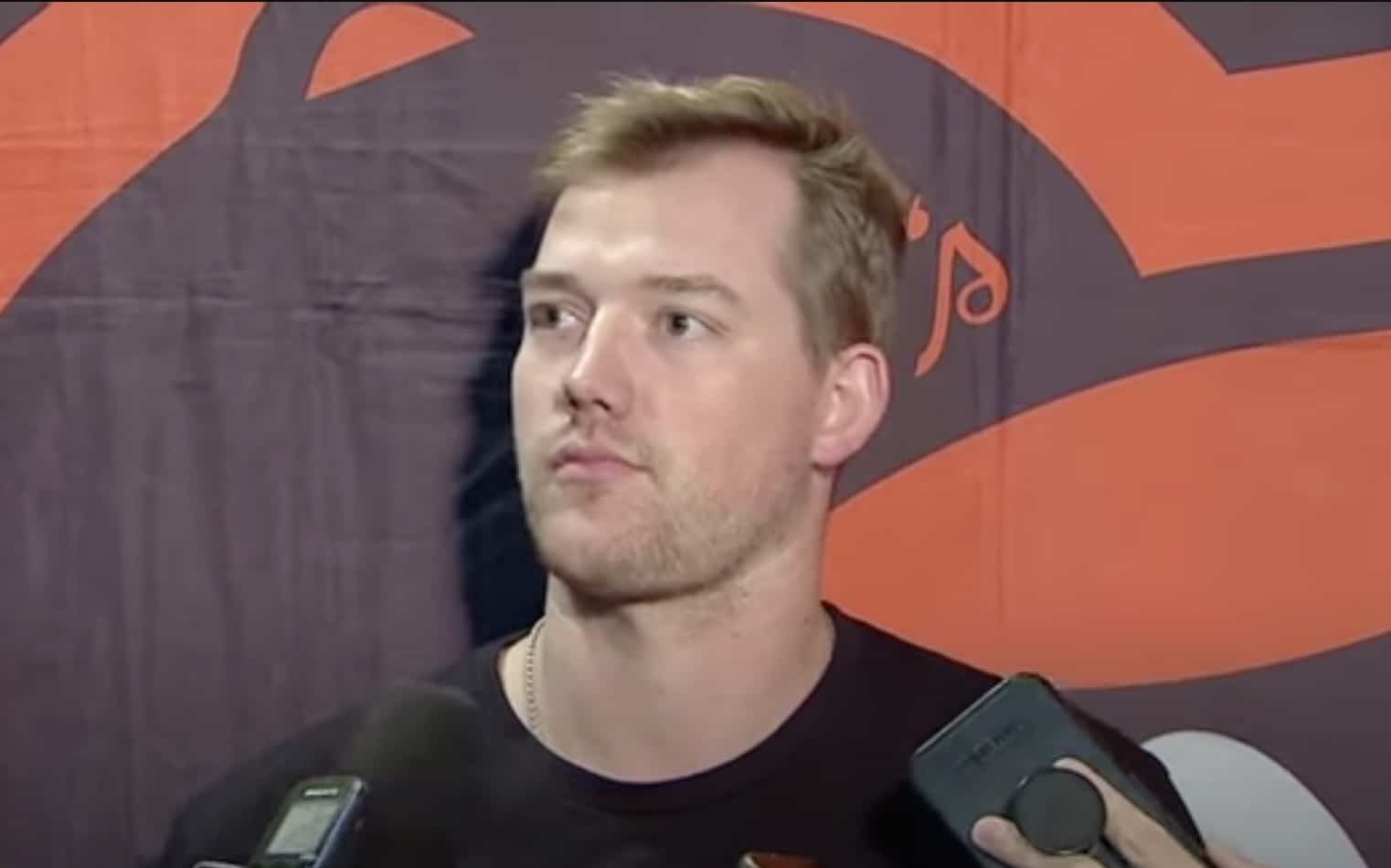I know about this practice, because I actually shared an afternoon of adolescent fun with these two giant kids – getting to be an honorary defensive lineman for a day – at a Dave and Buster’s on the roadtrip to Jacksonville in October 2000. The team was playing the ESPN Sunday Night Game that weekend and everyone in the hotel was getting cabin fever.
Leaving the team hotel around noon on that Sunday, trying to find a bar with a satellite dish to catch all of the afternoon games, I bumped into the pair trying with very little luck to hail a cab in suburban Jacksonville. They knew about Dave and Buster’s and that’s where they were headed as well, but for a different reason.
“We need to blow some steam off and get out of the room,” Siragusa told me. “We’re going to go play some games and now you’re our ride.”
My rental – a tiny American tin can whose make and model escapes me – sunk to the ground the second the pair jumped into the vehicle. Good thing the joint was only about six blocks from the hotel, I thought. They might take over the car and tie me to the hood.
We proceeded to spend the better part of three hours embroiled in a variety of different foolish competitions. They won anything that had to do with blowing stuff up or shooting objects. I won at the more thought-provoking games.
At one point Goose threw me into a flight simulator and was ready to bet me anything that I couldn’t land the plane after he had crashed it on the runway about five times. Not even knowing what I was doing, I put that puppy on the ground in one piece and celebrated accordingly.
I playfully challenged them at any of the “skill” games of athleticism. They passed – “gotta rest up for the game tonight” they said – but promised to kick my ass at the game of my choice in the future.
My reward: I got to ride them back to the hotel and live to tell the story.
Just big kids, that’s all they are.
I should also confess that my relationship with Burnett is special. Along with wide receiver Michael Jackson, he was the first Raven player I’d ever met and got to know.
On March 29, 1996, the day that Art Modell was in downtown at the Inner Harbor to announce the team name – most fans will remember the fanfare and the big RAVENS sign that was plastered behind the owner – the team brought a handful of players into Baltimore to meet the media and fans. It was the team’s first public event.
After the naming, I offered to buy WMAR-TV’s Scott Garceau lunch at the restaurant of my choice – Hooters. I grabbed a seat with the future play-by-play voice of the Ravens, and Jackson and Burnett happened to walk into the restaurant – completely anonymous in their new town – and I invited them to have a seat at our four-top table. We had room and they obliged. Garceau and I attempted to educate them as best we could about the city and about the heritage of football in Baltimore.
Burnett never forgot that. And I never forgot him.

The respect I gained for him during his off-season struggle in the winter of 1997 touched me. After blowing out the anterior cruciate ligament in his knee in Baltimore’s ballyhooed trip to Indianapolis in October 1996, I watched his rehab assignment and felt his agony, angst and helplessness. It was the first time I had seen a bad football injury up close and watched it affect him.
“It was a wake-up call for me because I had never been hurt,” Burnett said. “We had just moved from Cleveland and that was traumatic enough. Then I blew my knee out and it was like self-preservation. It was a difficult time in my life.”
Tying together the whole pack of hand-selected players was defensive coordinator Marvin Lewis. With the way the team was spending money, resources and – most importantly – draft picks on his side of the ball, some were privately calling him the “Golden Child” of the franchise. Of course, he didn’t feel that way on Dec. 28, 1998, when after three seasons of lackluster football under head coach Ted Marchibroda, Lewis was shown the unemployment line along with all of the other staff members.
History and destiny would paint a far prettier picture for him.
A little more than two years later, Lewis not only found that he didn’t have to move jobs or his family or lose the players that he so loved grooming. He was the patriarch of the greatest defense in the history of the game and the proud owner of a Super Bowl ring. How many championships and how many Hall of Famers this defense produces is for future authors to note.
Just make note of some of the statistical facts that this team will always be able to brag upon:
- Set NFL 16-game scoring record by allowing just 165 points.
- Allowed just 16 points as a unit in four games of the postseason.
- Set NFL 16-game record for rushing yards allowed with 970. They are the only team in history to allow less than 1,000 yards in a season.
- Recorded four shutouts, one shy of the 1976 Pittsburgh Steelers.
- Finished No. 1 in the NFL in six key categories: points allowed, rushing yard allowed, rushing average allowed, total takeaways, fumble recoveries and shutouts.
- Allowed one or fewer touchdowns in 18 of their last 22 games, including the postseason.
- Of the 194 regular-season offensive possessions by opponents, 88 (45.4 percent) were “three-and-outs.” The NFL average is 36.3 percent.
- Went the entire season without allowing a 100-yard rusher, for the second consecutive season. The total stood at 37 after the Super Bowl championship.
Despite being imminently qualified and rumored to be headed toward a head coaching job in the NFL after the Super Bowl, Marvin Lewis would return as the defensive coordinator of the 2001 Ravens after just one informational interview with the Buffalo Bills two days after the game in Tampa.
The media would cry foul, screaming racial discrimination. Even Lewis’ well-respected agent, Ray Anderson – who also represents Billick, Tampa Bay head coach Tony Dungy and Minnesota head coach Dennis Green – would make some remarks along those lines. Dungy even chipped in with some similar allegations.
The truth is, Marvin Lewis never truly wanted to leave.
His family was in Baltimore. His home was in Baltimore. His defense was in Baltimore, waiting for another opportunity to win another Super Bowl.

































